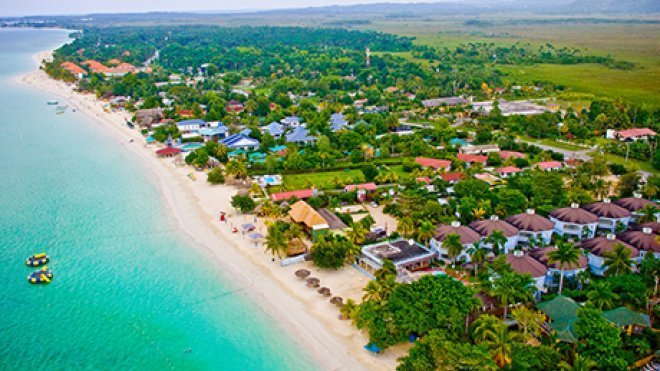Branding a Jamaica Beyond Just Beaches
RWU professor’s nation brand think tank hosts first conference aimed at creating a more complex international reputation for popular Caribbean tourist destination

KINGSTON, Jamaica – When most folks think of Jamaica, they conjure images of all-inclusive waterfront resorts and palm trees. But with rich history and eclectic culture, how can the 521-year-old Caribbean island nation that gave us reggae and an unlikely Olympic bobsled team elevate its international reputation beyond that of just a tourist destination for white sandy beaches?
That question served as the focus of a conference sponsored by The Re-Imagine Jamaica Project, a nation brand think tank founded by Roger Williams University Assistant Professor of Public Relations Hume Johnson. At the Brand Jamaica Symposium held at the University of the West Indies in July, Jamaicans from across the business, political, media, creative and sports realms identified the most challenging issues shaping the country’s image and what steps must be taken to craft a new, more inclusive portrait of the nation.
“For over half a century, the articulation of Jamaican identity, particularly by the tourism agency, Jamaica Tourist Board, is a sand-and-sea tourism and recreational model that conveys an incomplete narrative of Jamaica and the Jamaican people,” Johnson says.
Reputational challenges also plague Jamaica’s public image, as many panelists in attendance raised the need for addressing issues of poverty, crime and corruption throughout the country, noting that increasing educational and employment opportunities are key challenges affecting Jamaican national identity.
“These factors are fundamental if Jamaica is to gain control over its public image and reap the benefits of its brand,” says Kamille Gentles-Peart, an associate professor of global communication at Roger Williams who co-chaired the conference with Johnson.
According to Johnson, one of the first steps envisioned via the conference will be to create a collective brand strategy that positions Jamaica as a place of entrepreneurship, with a skilled workforce that produces innovative medical research, agricultural practices, digital technologies, and rich cultural arts. A number of ideas emerged from the conference, including increasing “country equity” via stronger promotion of the “Made in Jamaica” label on exports, and striving for rigorous intellectual property protection on ownership of creative works. Participants agreed these efforts should immediately commence.
“This brand strategy would include all sectors – not just tourism, creative industries and sports,” Johnson explains. “To attract investment and grow the economy, it is vital for Jamaica to illustrate that beyond a strong tourism and recreational brand, the country is also a strong and viable business brand.”